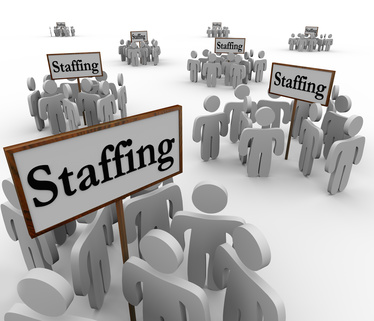Can a Temp From a Staffing Company Bring a Title VII Claim Against You?

the situation
You engage a temporary staffing company to provide you with some temporary laborers to help during a particularly busy time period. Under the arrangement with the staffing company, you pay the staffing company only and they pay the temps. You are not responsible for setting the pay rate, paying the taxes, or getting the I-9s from these workers. One of them says they were subjected to unlawful harassment. Could you face a Title VII claim even though these temps are employees of the staffing company?
the ruling
Yes—depending on the circumstances, you could still have exposure for Title VII claims even if you do not directly employ the affected worker. Last month, the Third Circuit held that an employee of a staffing company can assert a Title VII claim against not only the staffing company, but the company contracting with the staffing company for temporary help. Faush v. Tuesday Morning, Inc., No. 14-1452 (3d Cir. November 18, 2015).
Matthew Faush was a black male employed by the staffing firm Labor Ready. Tuesday Morning had contracted with Labor Ready for some temporary labor at a number of their stores. Faush was assigned to work at one of those stores and claimed he was subjected to racial slurs and terminated based upon his race. He filed a lawsuit against Tuesday Morning, asserting claims under Title VII and the Pennsylvania Human Rights Act. Tuesday Morning sought summary judgment on the grounds that it never employed Faush, as he was really an employee of Labor Ready, which was responsible for setting his pay rate, paying him, taking care of payroll taxes, and other similar responsibilities.
The district court agreed with him, but the appellate court did not. The appellate court found that there was an employment relationship sufficient to permit a Title VII claim against Tuesday Morning under a test based on the common law of agency. The court considered a number of factors in reaching this conclusion, including the fact that although Labor Ready may have actually issued payment to Faush, Tuesday Morning indirectly paid the wages and related costs of the employees (including any taxes and insurance) through the payments made to Labor Ready, that Tuesday Morning did have ultimate control over whether Faush was permitted to work at any particular store, that Tuesday Morning had complete control over the daily activities of the temporary workers, and that these workers were not hired for any specialized skillset, thus distinguishing them from those who could potentially be considered independent contractors.
The conclusion reached by the Third Circuit in this case was similar to that reached by the Fourth Circuit in July of 2015. Butler v. Drive Automotive Indus. of America, No. 14-1348 (4th Cir. July 15, 2015). Using a different test to determine if there was joint employment (a hybrid of the common law of agency and the economic realities test for an employment relationship applicable in FLSA cases), the Fourth Circuit found that a woman who was hired by a temp agency to work for Drive Automotive who claimed that her supervisor at Drive Automotive sexually harassed her could assert a claim against both the temp agency and Drive Automotive. In that case, the temp agency provided her uniform, paid her, provided a special parking lot for the temps, and had ultimate responsibility for discipline and termination. But, Drive Automotive was responsible for setting the employee’s schedule, arranging her training, and supervising her. The Fourth Circuit concluded that Drive Automotive had a substantial degree of control over the circumstances of the plaintiff’s employment, and thus it was a joint employer with the temp agency.
the point
Employers need to be aware of the potential for Title VII claims stems not only from those technically employed by the company, but also those that could be determined to be in an employment relationship. When an employer directly supervises and controls the daily work of temps (which is common), it could have exposure to a Title VII claim from these workers as well.

